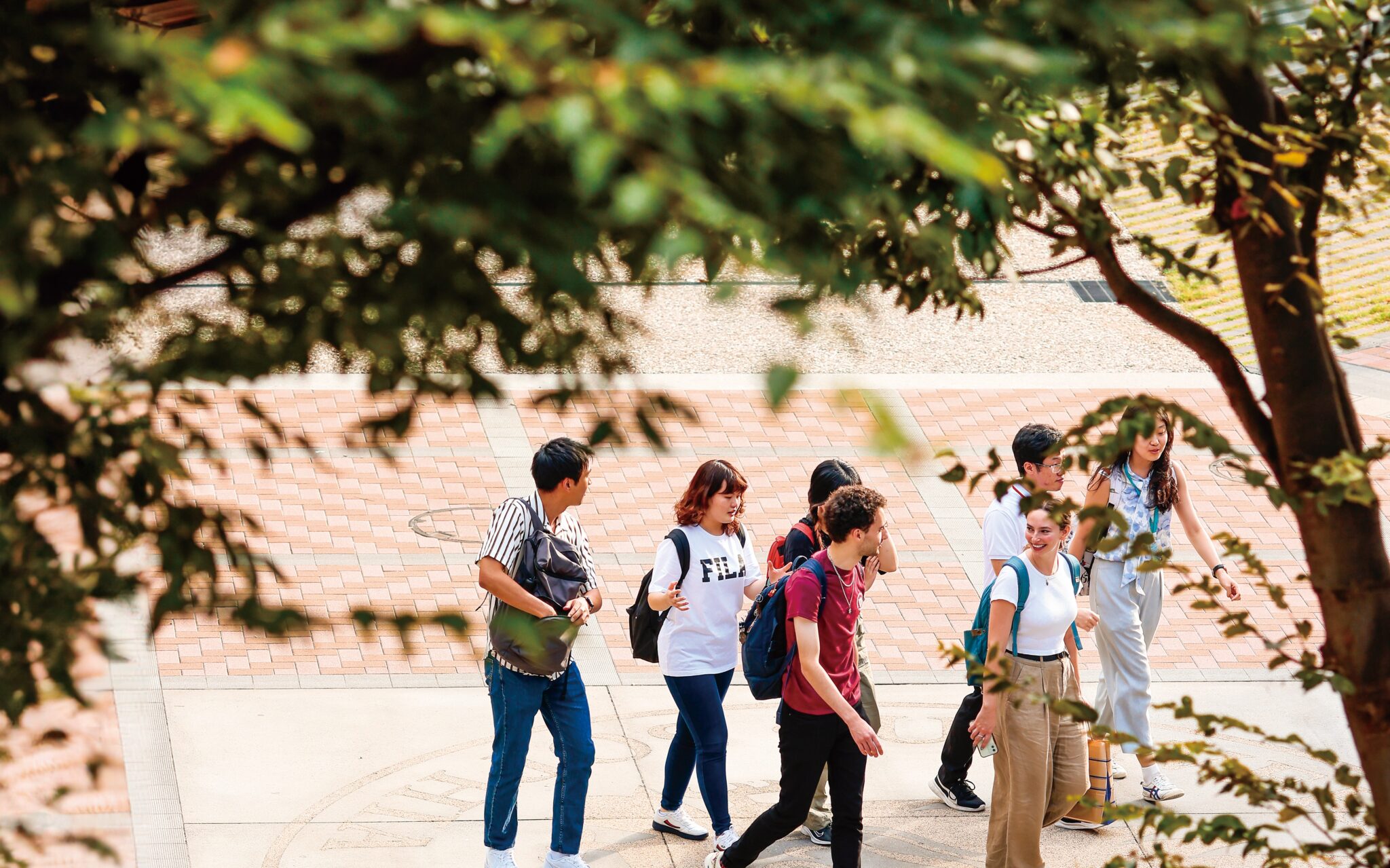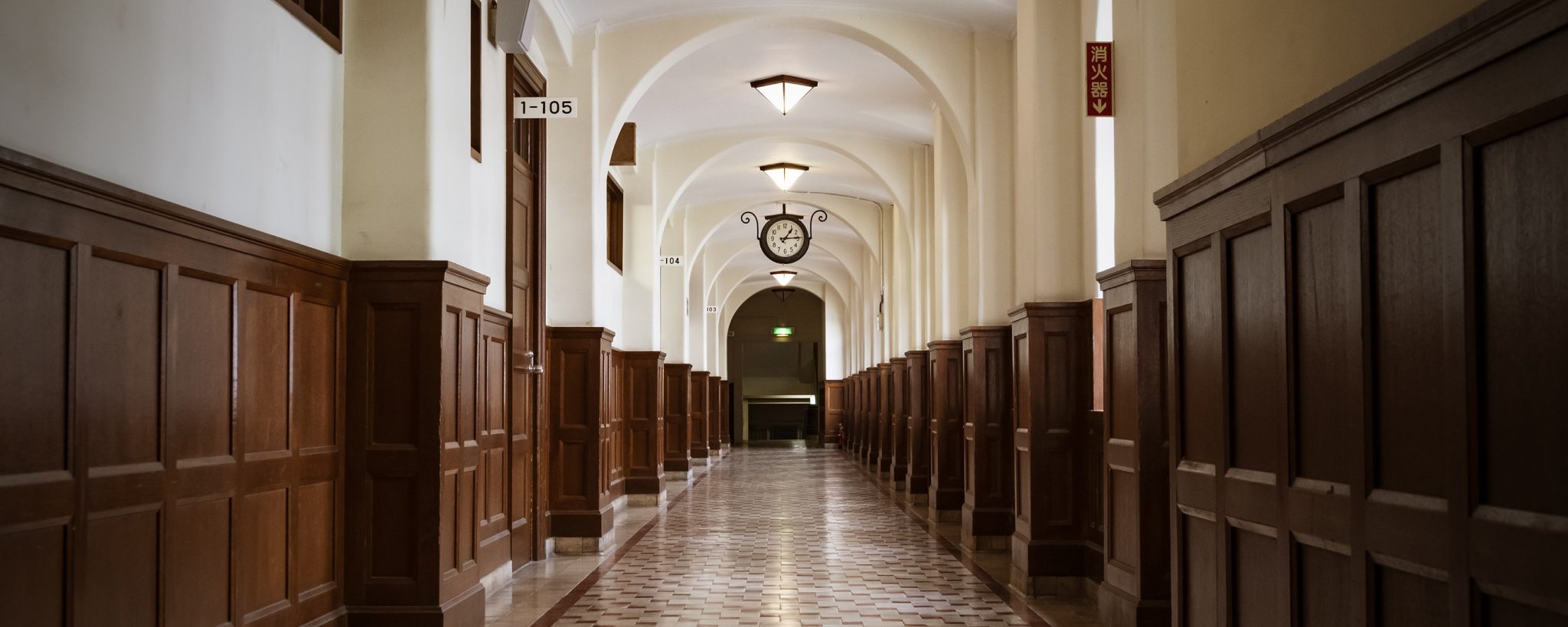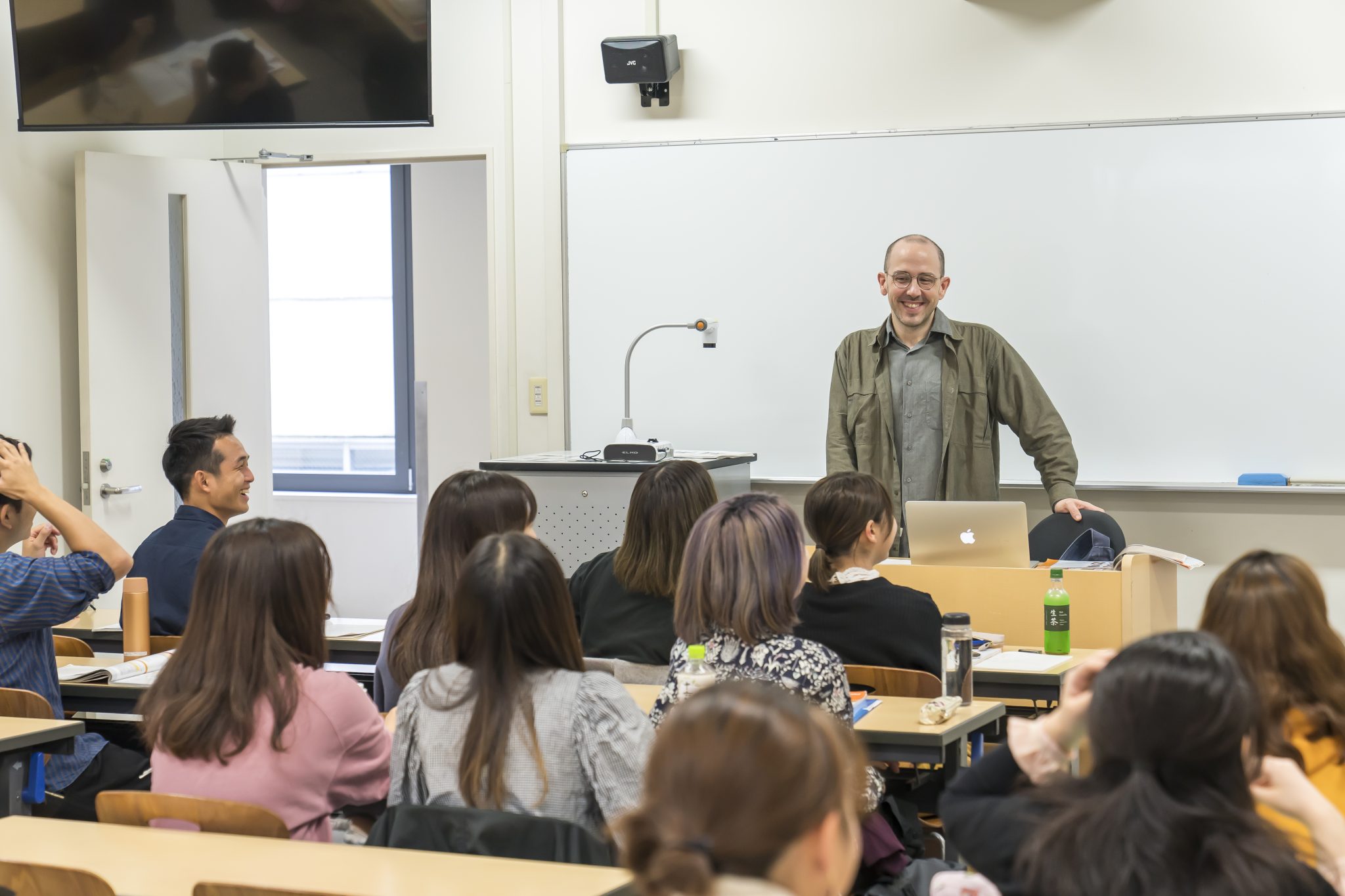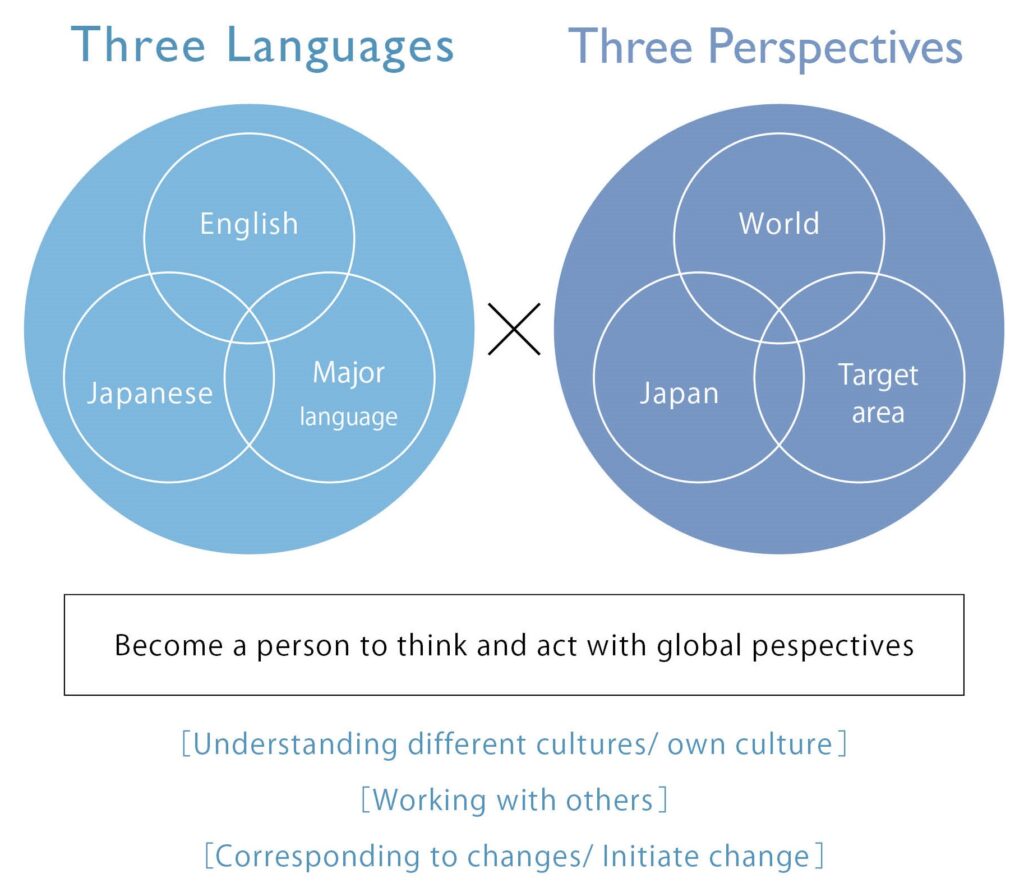Faculty of Foreign Studies
- Department of English Studies
- Department of German Studies
- Department of French Studies
- Department of Hispanic Studies
- Department of Russian Studies
- Department of Luso-Brazilian Studies


Learning at Sophia – Faculty of Foreign Studies Edition | 3 languages and 3 perspectives acquired at Sophia
To learn about foreign languages is to deepen the understanding of diversity

#Sophian
Sophian studying in the Faculty of Foreign Studies
They want to deepen their knowledge of the international community. They are interested in the life and culture of other countries. And they want to be involved in international cooperation in the future. Students who study at the Faculty of Foreign Studies are motivated not only by language but also by a variety of interests and intellectual curiosity. If you take your own “likes” as a starting point, your daily learning will be richer and more enjoyable.

#Three Languages
Understand the world using your Major, English, and Native Language
First of all, it is important to be able to express your thoughts and feelings in your native language. Then, by learning two languages, “English and another major language,” you will acquire not only the ability to use those languages but also a multifaceted perspective based on the history and philosophy behind each language. Another characteristic of undergraduate study is that it emphasizes the accumulation of communication in the field.

#Sophia Foreign Studies
What it means to study at the Faculty of Foreign Studies
The aim of studying in the Faculty of Foreign Studies is not simply to acquire the skills to speak a foreign language fluently. Rather, it is important to strive for a broad understanding of the history and culture behind the language used in a country or region. After understanding the local circumstances of each region, you will grow into a person who can act globally. That is what you will learn in the Faculty of Foreign Studies.
About the Faculty of Foreign Studies
To become a person who can connect people and regions on a global scale by acquiring “3 languages x 3 perspectives.”

While acquiring solid language skills in reading, writing, listening, and speaking, students will study their major language area by fully using the “three languages,” namely English and Japanese, in addition to their major language. In doing so, students will cultivate the “three perspectives,” that is, an understanding of the diversity of the “region,” a bird’s-eye view of the world and an awareness of issues, and a reaffirmation of “Japan” through comparison with the region and the world, and communicate this to the world. By looking at things from different perspectives, we become aware of various differences and develop wisdom that transcends and accentuates those differences. This leads to the ability to cooperate with others and to think and act from a global perspective.
“Concentrations” to develop a three-dimensional perspective through regional studies
In the third year, students choose one of nine “Concentrations” to pursue specialized research in their area of interest.
Educational Objectives and Policies
-
To cultivate advanced proficiency in foreign languages, and use such proficiency as a basis for pursuing research in area studies, language, international politi cal theory, civil society and international cooperation theory through nine research courses focusing on the regions using the languages that constitute the Faculty’s majors.
-
To produce individuals capable of contributing to increasingly globalized societies through proficiency in the languages that constitute the Faculty’s majors, pluralist outlooks, and knowledge acquired through specialized research, as well as experts in research related to area studies, li nguistics, international political theory, civil society and international cooperation theory.
-
The Faculty of Foreign Studies sets standards for the skills and knowledge students should acquire before graduation as described below. Those who fulfill the graduation requirements shall be deemed to have acquired these qualities and will be awarded a diploma
- The ability to multidimensionally observe language, which is unique to humans
- The ability to understand the universality and diversity of languages, including Japanese, and to explore different language events
- The ability to acknowledge the broad roles of language in human life, including society, culture and education and to proactively utilize the knowledge acquired
- The ability to interdisciplinarily research the history, politics, economy, society, culture, etc. of a certain country, society or region
- An interest in the events and issues of a certain country, society or region and the ability to perform in-depth analysis using expertise
- The ability to make comparative observations of multiple countries, societies and regions, including Japan
- An interest in international politics, civil society and international cooperation and the ability to perform in-depth analysis using expertise
- The ability to read and discuss material written in multiple languages, including Japanese and English
-
In accordance with the Diploma Policy, the Faculty of Foreign Studies constructs its curriculum with Major Language Courses and Concentration Courses which both assume proactive and positive student participation.
- 【Major Language –Major Language Courses】Have freshmen and sophomores systematically and practically acquire a basic level of proficiency in their major language. With this proficiency as a foundation, have juniors and seniors acquire an adequate level of proficiency to engage in specialized research. Classes are focused on practicing speaking and writing skills so that basic all-round skills are acquired.
- 【Major Language –Basic Area Studies Courses】Have mainly freshmen and sophomores acquire basic knowledge of the history, politics, economics, society, culture and language of the region in which the major language is spoken. Classes will be based on lectures and include group work and presentations as required.
- 【Concentrations –Introductory Courses】Before students select a Concentration according to their interests, concerns and intentions in the autumn semester of the sophomore year , have freshmen and sophomores acquire the basic knowledge and methodologies required for pursuing research. Classes will be based on lectures, and include group work and presentations as required.
- 【Concentrations –Core Courses】Have mainly students in their sophomore year or higher deepen their knowledge and problem consciousness and pursue multidimensional learning by centering their studies on Concentrations. Lecture-based courses will incorporate group work and presentations. Language Courses will include practicing using the language in order for students to acquire high-level language proficiency.
- 【Concentrations –Seminars, Thesis】Juniors and seniors will foster self-motivated research skills by setting up their own research themes and studying them in depth. Furthermore, compiling their thesis or graduation research will enable students to acquire the conceptualization skills, logical thinking skills and expressive skills. Classes will enable students to acquire the methodology to compile academic papers and involve mainly presentations and discussions.
-
The Faculty of Foreign Studies seeks students who will strive to acquire foreign language skills based on an efficient proficiency level of Japanese. Furthermore, we expect students to have a positive interest not only in language studies but also in events occurring both locally and globally, to consider them as if they were their own problems, and to engage in continued efforts to find solutions.
Departments
Department of English Studies
Students will develop advanced operational skills in English and acquire a broad range of knowledge that will serve as a foundation for specialized studies in area studies, language studies, etc., and contribute to a globalizing society.
Department of German Studies
Students will develop advanced operational skills in German, understand the culture, values, and ways of thinking of German-speaking countries, and acquire cross-cultural understanding methods and a global perspective.
Department of French Studies
Students study the French language and French-speaking societies from various perspectives and comprehensively, aiming to become world-class experts in research of foreign country.
Department of Hispanic Studies
Students will acquire specialized knowledge of the globally expanding Hispanic language and the Hispanic-speaking world, a high level of intercultural communication skills, and the ability to view the world from multiple and relative perspectives.
Department of Russian Studies
The goal is to acquire operational skills in the Russian language, to understand the reality of Russia, and the culture and spirituality of its people, and to become bridges between Japan and Russia.
Department of Luso-Brazilian Studies
Our goal is to develop a comprehensive understanding not only of Portugal and Brazil, but also of Portuguese-speaking regions, and to become people who can take on challenges on the world stage, carrying with them a frontier spirit that is in keeping with the spirit of the Portuguese who pioneered the Age of Discovery.